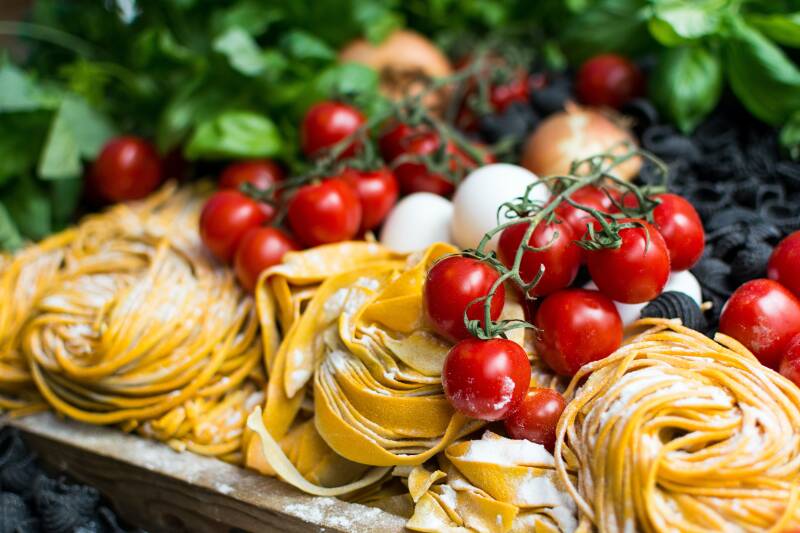
Simple and rustic, yet remarkable, Italian cuisine has long been a world favourite. With at least one Italian restaurant in every town and city, the charm and artistry of Italian cuisine have made it wildly popular and almost universally enjoyed. While we’d all love the freedom to jump on a plane and experience the joys of Italian cuisine in its homeland, you can get a taste of authentic Italian cooking in the comfort of your own home. If you’ve yet to embark on an Italian cooking adventure, consider the following tips to get you started.
Salt Your Pasta Water
Salting your pasta water is essential to ensure the pasta is thoroughly and evenly seasoned. Even if your sauce is heavily seasoned, your pasta noodles will taste bland if you skip this crucial step in the cooking process. If you’re watching your salt intake, don’t be put off by a hefty pinch of salt added to a large pot of boiling water - you won’t be consuming that much sodium once your dish is finished, as your noodles will only absorb a small amount.
Use Exceptional Ingredients
The simplicity of Italian cooking relies heavily on exceptional ingredients to produce the incredible flavours we all know and love. Fresh, high-quality ingredients make the difference between a mediocre dish and one that is truly spectacular. Source local, seasonal produce for the best results. Vegetables grown in optimum conditions and harvested in season naturally taste fresher and sweeter than imported supermarket alternatives, so head to your local farmer’s market for some excellent locally-grown crops. It is also worth sourcing meat and cheese from a traditional Italian delicatessen for the best authentic ingredients.
Avoid Overcooking
In terms of Italian cooking, overcooked pasta is considered a cardinal sin, as is overcooked arborio rice. Not only does overcooking your pasta reduce the fibre content of the noodles but you will be left with a sticky, gelatinous texture. Ideally, pasta should be cooked “al dente”, meaning “to the tooth”. In other words, your pasta should be tender but firm when bitten. If you plan on finishing your pasta in a sauce, as you would with a traditional carbonara, ensure you add it while it is slightly underdone so as not to overcook it when emulsifying the sauce.
Balance Your Flavours
Learning how to balance flavours is a significant aspect of cooking, regardless of cuisine. You can achieve this by tasting and seasoning as you cook to ensure the ingredients marry together as intended. Recognising the flavours of sweet, salty, sour, bitter and umami and learning what to add and how it will affect the finished product will give you a major advantage in the kitchen. For instance, adding a pinch of sugar to create balance can prevent a tomato-based sauce from being too acidic.
Use Wine As An Ingredient
The Italians love to cook with wine and have done so for centuries. Wine can add an incredible depth of flavour and complexity to a dish. As you would imagine, it is worth sourcing good-quality Italian wine for your Italian cooking experiments. However, the exact variety will depend on the recipe. For example, a classic Italian Chianti, famed for its tannic quality and earthy flavours, can be an excellent choice for rich sauces and stews. On the other hand, a crisp, light Pinot Grigio is the perfect choice for a traditional Risotto alla Milanese. You can read more about cooking with wine here.
Add Pasta Water To Sauces
While the concept of adding extra liquid to a sauce may lead you to believe that it will thin it out and water it down, pasta water actually has the opposite effect. A ladle of starchy, perfectly salted pasta water will result in a perfectly thickened, velvety sauce that clings to the pasta as it would in an authentic Italian restaurant. You can also use pasta water to help emulsify and season a carbonara sauce.
Keep Your Cheese Rinds
Once you’ve reached the end of your wedge of Pecorino Romano or Parmigiano Reggiano, don’t throw the rind away. Instead, you can use it to add a rich, nutty flavour to soups and pasta sauces. You can also infuse olive oil with a leftover cheese rind for use in salad dressings and dipping sauces - an excellent zero-waste tip that will enhance your Italian cooking.
Add comment
Comments